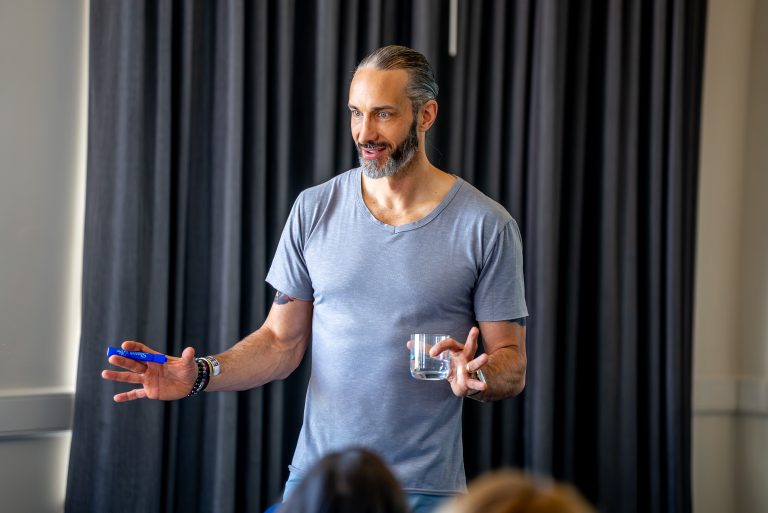Are you good at investing?
Where do you like to invest?
Where would you never want to invest?
As you look back through your years of investing, what have you learned?
Do you know where to invest to get the best returns?
Have you ever invested and lost money?
If so, how did you feel?
These are key questions to discover what to invest in—and what not to invest in.
I started putting money into investments at the age of 18.
I was always fascinated by having my money make money. I loved putting my money to work—but it didn’t always work.
I’ve made money and I’ve lost money. I’ve learned a lot of lessons the hard way, and sadly, have had to repeat a few.
The main investing lesson I’ve learned is that we all have what I call “Investor DNA.”
What is Investor DNA?
Investor DNA is understanding who you are as a person first, and then using that knowledge as a basis for determining which investments are a good fit for you, your family, and your business.
Discover which income-producing asset matches your strengths with the free Income Asset DNA Quiz.
The core components of Investor DNA include:
- Core Values: These are the things you deem to be important and esteem highly. They create a foundation for making decisions.
- Core Competencies: These are your strengths, experiences, and areas in life where you can create high levels of value.
- Core Drivers: Those things that motivate and energize you. They are essentially the “gas in the tank” that helps fuel you.
- Core Focus: These are the areas of life you’re committed to, where you create rhythms and habits to bring forth results. We’re taught to diversify with investments. But diversification is the opposite of focus and will pull you away from what’s most important to you. People often di-“worse”-ify by spreading themselves thin, allocating money to things they do not understand, and slow results by using a faulty methodology meant for preservation to fuel growth.
The best investments for you are those that align with all four components of your investment DNA.
Are You Investing, or Gambling?
A good investment for one person might not be for another. Some investments may easily make sense to one person, or seem like a foreign language to another.
A good investor knows how to do due diligence and mitigate risk.
When we take too much risk, or when we aren’t sure of how something works, or when we hand our money over without protecting our downside, we gamble. We call it investing, but it’s speculation, pure and simple.
Is your money working for you?
Are your investments performing how you want or expect them to?
What would prevent your investments from working?
The further down we are on the “value chain,” the more risk we take.
The value chain refers to every person and transaction involved in a product or service, from the origin point to the end consumer. The higher up the chain, the more value is created.
The more people involved, as middlemen, as salesmen, the further away we are from value. The further we are from the boardroom, the less we know.
The “acceptable” model for investing includes not knowing the managers, analysts, or even the companies or trades within funds. Therefore, much of our so-called “investing” is devoid of accountability and knowledge. Where is the “personal” in personal finance?
I see investing as a method of value creation. Ethical money is made through value creation. How do your investments provide value in the marketplace?
The stock market used to be of tremendous value. It was created to raise capital to form or scale a company. This capital was necessary to build infrastructure for a big vision. This allowed for reach and impact or accessing innovation and ingenuity. Investing created value for these companies by providing the required capital to grow, add more value, and expand.
Today’s market, though, is often a way for value extraction, essential for the exit. It requires capital for these “exits” to take place through the automation of funding retirement plans.
In today’s world, is there even a need for a public marketplace? Through private capital, most companies are fully funded before ever going public.
I’m not arguing to abolish the public markets, however. I am merely pointing out that times have changed. How companies are funded has changed.
In today’s world, one of the riskiest things a small company could do is go public. Through mergers and acquisitions or short selling, they lose control and can lose value.
With limited knowledge, the public buys stocks on the secondary market. The primary market is an IPO (initial public offering). The capital is already raised with the IPO or a percentage of the capital is taken off the table with the original owners. The secondary market is the buying and selling of the stock after the capital is raised.
Again, a lot is happening behind the scenes with the stock market, in the boardrooms, and through trading. Yet, we are mostly unaware of what is happening. This is devoid of Investor DNA.
We’ve been convinced that investing is a passive activity. Yet what often happens is that money passes us by. I’d argue that what we have been calling investing is more speculation and gambling.
Sure, we have been taught some strategies to address some risks.
Diversify and asset allocate.
Rebalance.
Dollar-cost average.
But all of these strategies are over-reliant on one dimension: the stock market.
Investing has become synonymous with stocks, and even more so, mutual funds. It is like calling something by the brand name “Kleenex” rather than facial tissues. This is “genericized trademarking,” and our way of investing has become just that—generic.
There is approximately $22,000,000,000,000 invested in mutual funds, including ETFs and index funds.
$22 TRILLION. Damn.
Why?
It is easy. It’s available. It’s marketed well.
You can set it up to be automatic, you don’t need an exact amount of money to buy a stock, and they can fuel retirement plans.
Yet, what about the risk? What about the reward? What about benefits along the way? What about the consideration for your Investor DNA?
Funds rarely create cash flow, often invite risk, and come with a myriad of fees that confiscate wealth and hinder performance. They create complexity by having more companies than any individual can research or know about on their own.
Investing in mutual funds requires trust. But do they deserve our trust?
This is only one option. An option where we have learned to tolerate the downsides that read like a pharmaceutical advertisement.
Past is not an indicator of future results.
You are taking the risk and there are no guarantees.
You could lose it all (not likely, but it is on the list).
This will be volatile.
People have simply accepted volatility as a required side effect. But what about the side effects that aren’t listed:
- Dark pools (where institutional investors and hedge funds are buying at lower prices)
- Flash Trading (supercomputers are confiscating your wealth)
- Insider trading (politicians are notoriously doing this)
People don’t always consider other options because they are convinced that investing is complicated and they don’t have time, so just trust the experts.
Who are the experts again?
Salespeople whose companies are handing money to Wall Street.
If they have gained your trust, great.
But do you know how your investments work?
Why they would increase in value? How they would increase in value? When they will increase in value?
How do you protect the downside?Investing is about numbers and money. But it’s also about values, competencies, focus, personal drivers, purpose, and even joy.
It’s about your impact and legacy.
It’s about value creation and voting with your dollar.
Most importantly, it’s about your prosperity, your peace of mind and happiness.
Want better returns, less risk, and more control? Then discover and stick with your Investor DNA.
Where are you most gifted, knowledgeable, and passionate?
What’s important to you?
What would you love to support, be of value to, or be involved with?
Your investing doesn’t have to be relegated to funds. You don’t have to accept lack of control and volatility.
Instead, you can focus on investments that align with your values.
When you make investment decisions from this more holistic place, then you become congruent and subsequently enjoy the process much more. You can make better, wiser decisions.
It takes time.
It requires developing skillsets.
It may require investing in yourself first, before building your bank accounts or balance sheets. An investment in mentors or coaches, rather than fund managers, who can support you along the way.
If you are willing to do the work, take the time, and discover your Investor DNA, you can become a better investor.
Build a team, do due diligence, and become a better investor by growing your knowledge.
Inevitably, you will be able to create more value and grow more money in the long run than diversifying in a mutual fund.
Should you do real estate? That depends on your knowledge, passion, and skill.
Business? Stocks? Tax Liens? Crypto? Same answer.
What about investing is important to you?
What are the best uses of money for you?
What makes you happiest in life, and when/how do you spend money aligned with those activities?
When you look at your investing, are there areas that aren’t aligned with your Investor DNA? Do you have any investments that drain your energy?
By understanding and staying congruent with your Investor DNA, you can better mitigate risk. You can become a better investor and remain active in the game of value creation and growth.
Don’t diversify. Instead, focus on investments that are completely aligned with your core values and competencies and then remove everything else that’s just a distraction for you.
Start by assessing your current investments.
Do you feel certain about your investing and investments? Meaning, do they perform at a level that you are happy with, do they meet or exceed expectations, or do they create stress, disappointment, and worry?
Are your investments aligned with your Investor DNA?
If not, instead consider alternatives.
What asset class do you know the most about?
What area would you like to learn the most?
Are there areas that could be enjoyable and that you have energy towards with investing?
If you have no appetite to learn about investing and your Investor DNA, if you don’t feel you have the time, expertise, or willingness, consider paying off loans and storing your cash in properly structured and funded whole life cash value for stability and certainty.
If you aren’t an investor, maybe you are more of a saver. So save interest and put money in a savings vehicle like whole life.
The answer to your questions comes down to the same answer: it depends. Personal finance is meant to be personal.
Some people love to invest, others don’t. Some would love to invest when using Investor DNA as their guide, and still others, would prefer to focus on other matters. Investor DNA.
What kind of investor are you?
Where do you want to allocate your time and energy?
The best news. Once you know your Investor DNA, not only will you become a better investor, you’ll recover time. There will be no reason to consider any investment that isn’t aligned. 80+ percent of available options won’t make sense for your portfolio.
And in the end, you’ll have more money, knowledge, and peace of mind.
Ready to Stop Guessing With Your Money?
Most financial advice tells you to save more and spend less. That’s a losing game. Garrett’s free book Killing Sacred Cows reveals why the conventional wisdom is costing you—and what to do instead.
Do it yourself? Try the free Income Asset DNA tool on X1 Wealth.
Frequently Asked Questions
What is Investor DNA?
It’s your unique investing identity based on what you know, love, and can control. Knowing your Investor DNA helps you invest in things aligned with your skills and values—not just what everyone else is doing.
How do I discover my Investor DNA?
Ask: Where do I like to invest? What have I learned from past wins and losses? What do I understand deeply? Your best investments will align with your knowledge, interests, and competencies—not hot tips.
Why do I keep losing money on investments?
Because you’re probably chasing tips, investing in things you don’t understand, or letting emotions drive decisions. Align your investments with your Investor DNA—focus on what you know, control, and can generate cash flow from.
Should I invest in stocks if I don’t understand them?
No. Investing in things you don’t understand is speculation, not investing. If you can’t explain what you own and why, you’re gambling. Find assets that match your Investor DNA—real estate, businesses, or other cash-flowing opportunities.




3 thoughts on “Become a Better Investor by Knowing Your Investor DNA”
Another great article. I’d be curious if you or someone in your community has developed an AI tool to help people develop their personal Investor DNA?
We are developing a lot of tools, mainly legacy tools right now. Some assessment tools as well. This is on the list.